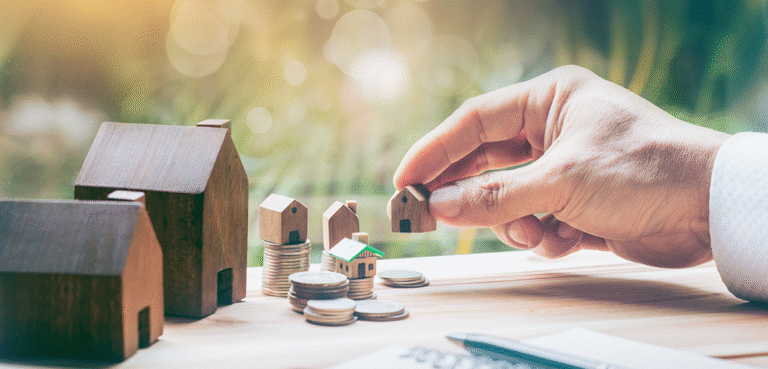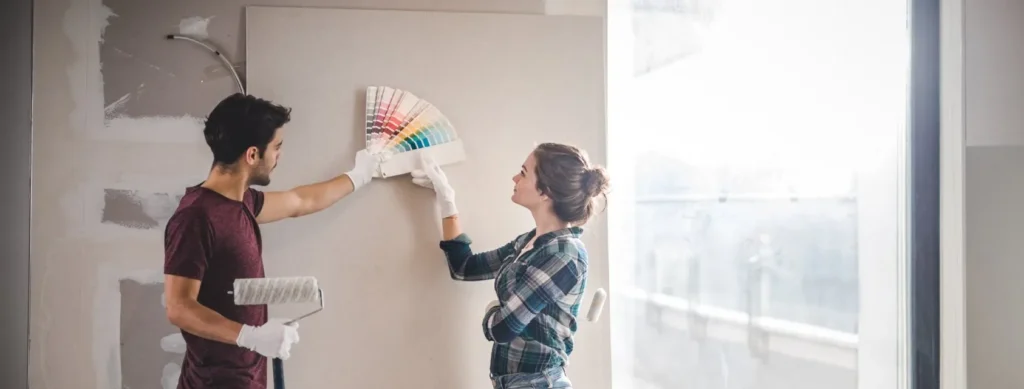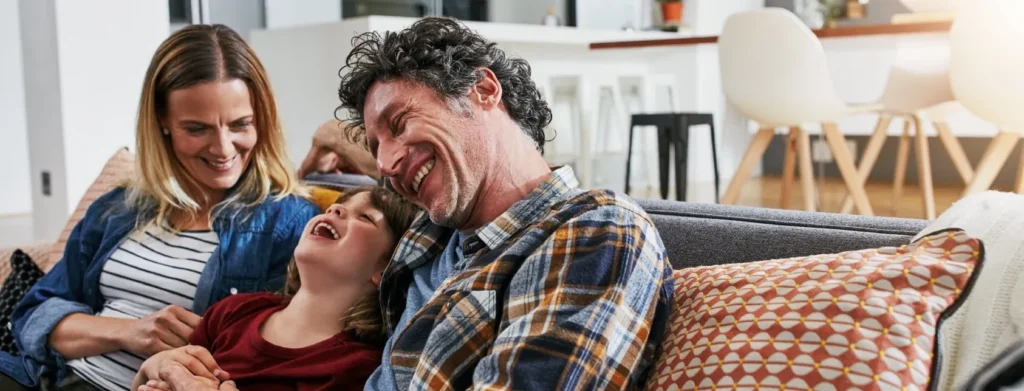
Remortgage for Debt Consolidation
Want to remortgage to consolidate debt? On this page we go through debt consolidation remortgages, how they work, when you can do it, the pros and cons, which lenders are available and more. We also talk about some other options for when remortgaging for debt consolidation isn’t suitable, the kinds of questions we’ll ask you as well as where you can go for debt management support.
Speak to a remortgage adviser
Fill out this enquiry form and we’ll contact you to book a free call with one of our mortgage experts.
"*" indicates required fields
Can You Remortgage for Debt Consolidation?
Yes, it is possible to consolidate debt by remortgaging. Essentially, you remortgage your property with a lender to release equity and raise money. You then use this money to pay off unsecured debts.
Instead of multiple unsecured debts, you have a single monthly payment that you make to the lender. This payment is made up of a mortgage repayment and interest.
Debt consolidation can help you clear debts, save yourself stress and organise your finances. However, it’s important to note that you could end up paying more overall with a debt consolidation remortgage, than if you had continued to manage your unsecured debts, as the mortgage will be spread over a longer term – i.e. you would be paying interest for longer. Find out how long it takes to remortgage.
Contents
Debt Consolidation Remortgage Eligibility
Remortgaging is when you switch to a new product with a new lender on a property you already own. You can remortgage from 6 months after your name has been added to the title deeds of your property.
If you currently have a mortgage secured on your property and you’re approaching the end of your introductory rate period, you can start to arrange your remortgage up to 6 months in advance of the end of this period – or sooner if you’re on a variable.
Find out how to remortgage and what the best remortgage rates are available to you.
The amount you can borrow when you remortgage will depend on your affordability, the value of your property and the equity you have in your home. Most lenders also require that you must remortgage for at least £25,000. Read our mortgage deposit guide to understand more about how LTV ratios affect your mortgage rates.
What types of debt can you consolidate with a remortgage?
A remortgage can help you consolidate the following types of unsecured debt:
- Credit cards
- Store cards
- Overdrafts
- Personal loans
- Car finance
- Money borrowed from family and friends on which you pay interest and there is an agreement in place
What types of debt can’t you consolidate with a remortgage?
You can’t consolidate unsecured borrowing with 0% interest, such as a 0% credit card. This is because it wouldn’t make financial sense to consolidate these interest-free debts onto a mortgage, where you would be required to pay interest.
Can you get a remortgage for debt consolidation with bad credit?
It is possible to get a debt consolidation remortgage or loan when you’ve got bad credit due to missed payments or CCJs (county court judgements). What’s available to you will depend on your individual situation. It is helpful to know your credit score and be able to provide this information to your mortgage broker.
Our team have access to specialist lenders that don’t take into consideration your credit history when assessing your application. These lenders underwrite on a manual basis and look at your unique position.
Find out more from one of our expert mortgage advisers about how to remortgage with bad credit at: 023 8235 2300.
Borrowing More on a Remortgage to Pay Off Debt – How It Works
If you already have a mortgage on your property, you’ll need to remortgage with additional borrowing, which means taking out a mortgage for an amount greater than your remaining mortgage balance – also known as a capital raising mortgage.
This allows you to release equity from your home and convert it into funds.
The new mortgage will replace your existing mortgage, and you can then use the surplus funds from the remortgage to pay off your unsecured borrowing and consolidate your debt.
How much can I borrow when remortgaging for debt consolidation?
How much you can borrow on a debt consolidation remortgage will ultimately depend on your affordability, the value of your property and the equity you have in it.
Your remortgage broker will help you figure out how much you can borrow and guide you through the remortgage process. Speak to an expert adviser today at 023 8235 2300.
Can you remortgage to consolidate debt if you don’t currently have a mortgage on your home?
If your property is unencumbered – i.e. you don’t have an existing mortgage on your property – you can typically remortgage at up to 85% LTV (loan-to-value) depending on your affordability. This means you could release up to 85% of the equity in your home. It is possible to remortgage at a higher LTV – 90% mortgage or even 95% mortgage – but only a handful of lenders will go to 90% or 95%.
Debt Consolidation Remortgage Process
First call
You call us or arrange a call back and speak to one of our expert mortgage advisers. We take some details from you then arrange a follow up mortgage appointment to talk about our recommendation.
Decision in Principle
Once you’re happy with our recommendation and ready to proceed, your adviser will work on securing your mortgage DIP (Decision in Principle). This is essentially a promise from the lender that they’ll allow you to borrow a certain amount of money, provided the information you’ve supplied is accurate and subject to a valuation on the property.
Pre-application and submission
After securing your DIP, we’ll begin preparing your mortgage application. We’ll send you a pack that explains the documents the lender requires. Your adviser will then hand you over to a client relationship manager, who will help you get everything ready for submission. Once everything is in order, your adviser will submit your full mortgage application.
Lender underwriting and valuation
The lender underwrites your application which means they check all the information and documents you’ve provided. They’ll also instruct a valuation on the property.
Mortgage offer
Following a successful underwriting process and valuation, the lender will accept your application and send you a mortgage offer. They’ll also send us a copy.
Conveyancing
Once you accept the mortgage offer, you’ll go through conveyancing. This is where your solicitor arranges all the legal paperwork that lets you transfer from your existing lender to the new one. Read our guide on “Do I need a solicitor to remortgage?“
Completion
Finally, after you’ve signed all the paperwork, your solicitor will set a date to draw down the new funds and clear the outstanding balance with your existing lender. Any surplus funds will be returned to you. This is called completion.
You can then use this money to pay off your unsecured debts. By doing so, you’ll be consolidating your debts into your mortgage, which you’ll repay through monthly payments consisting of mortgage repayments and interest payments.
Should I Remortgage to Consolidate Debt?
Pros of remortgaging to consolidate debt
- You could save yourself a lot of worry and stress by consolidating multiple unsecured debts into one monthly payment
- You could avoid penalties that would come from missing any unsecured debt payment deadlines like damages to your credit score or going into arrears
- It can make your finances simpler and easier to manage
Cons of remortgaging to consolidate debt
- You could end up paying more overall because you would pay interest over a longer term
- You may be in debt for a longer period of time
- You would reduce the equity in your home by borrowing more on your mortgage
- You’re securing debt against your home, instead of having it as unsecured debt
- There could be some mortgage ERCs (early repayment charges) you might have to pay if:
- You’re still in your introductory period on your fixed rate
- You want to repay your unsecured borrowing early – e.g. within the 90 days settlement period
See what our expert has to say about getting a debt consolidation mortgage.
What Are the Best Remortgage Deals for Debt Consolidation?
There isn’t one single best debt consolidation remortgage option. It all depends on your unique situation.
The options available to you will depend on:
- Your affordability – i.e. how much you can borrow based on your income
- The equity in your property – the more equity you have in your home, the more you may be able to release to raise money
- The value of your property – the higher the value of your home, the greater the amount you can borrow on it
- Your credit score – bad credit as a result of debt may limit your borrowing options
Bad credit or limited affordability may restrict the products and lenders available to you, but this doesn’t mean you won’t find a suitable option. At John Charcol, our mortgage advisers assess your situation and requirements, determine which lenders and products are most suitable and manage the entire remortgage process for you. We’ll find the best option tailored to your circumstances.
Read our Bad Credit Mortgage Guide.
Who Are the Best Debt Consolidation Mortgage Lenders?
Most lenders on the market will consider remortgaging for the purpose of debt consolidation, including but not limited to:
- HSBC
- Barclays
- Santander
- Halifax
- Skipton
- Bank of Ireland
- Virgin
However, if you have a particularly complex situation you may need to go to a specialist lender that carries out underwriting on a case-by-case basis, including but not limited to:
- Bluestone
- Together
- Kensington
- Pepper Money
- Precise
- The Mortgage Lender
You’ll likely need to use a mortgage broker like John Charcol to access these specialist lenders as they often require that each applicant comes through an intermediary.
Other Debt Consolidation Options

Further advance
You may be able to take out a further advance with your existing lender instead of opting for a remortgage. Further advances can be a more cost-effective option if you’re still on your introductory rate and would face ERCs by remortgaging early. This option allows you to borrow more while keeping your current mortgage. Your further advance rate may differ from your existing mortgage rate, but both are with the same lender.
Second charge
A second charge may be a more suitable option if you existing lender can’t grant you a further advance and/or you face high ERCs which would make remortgaging more costly. With a second charge, you keep your existing mortgage (the first charge) on your home and take out a second mortgage (the second charge) on the property. You then have 2 charges on your property. These can often be at different rates and for different terms.
You can find out more information on further advances and second charges on our website or speaking to one of our advisers by calling: 023 8235 2300.
What Questions Will You Ask?
We’ll need you to provide us with some personal information so that we can make an informed decision as to whether debt consolidation is right for you and which option would work best – whether that’s a remortgage, further advance or second charge.
We’ll ask for basic information such as:
- Your personal details
- Your income
- Your expenditure
- Insight into your personal and future circumstances
Your adviser will also require some more detailed information regarding your debts, such as:
- The types of debts you currently have
- The amount of each debt
- Who each debt is with
- What the interest rate of each debt is and any promotional deals
- Whether there are any redemption costs and their amounts
- Your current monthly contributions/payments towards the debts
- How these debts built up – this is simply to help us make sure that any future borrowing is manageable
Finally, we’ll ask for the following documents:
- A bank statement for the last 3 months – all applicants must provide this
- A recent credit file – all applicants must provide this
- A recent credit card statement for all debts
- Loan statements for all debts
- Evidence of income such as last 3 months of payslips/or tax calculations and overviews – all applicants must provide this
Further Support for Debt Consolidation
Debt can be extremely stressful, so it’s worth seeking external support if you need someone to talk to, you’re struggling to keep on top of your debts or even if debt consolidation just isn’t right for you.
Some organisations and charities that can help you manage your debts include:
Get in touch with our experts
Book an appointment with an adviser today and we’ll help you work out which mortgage deal is best for you and your requirements.

